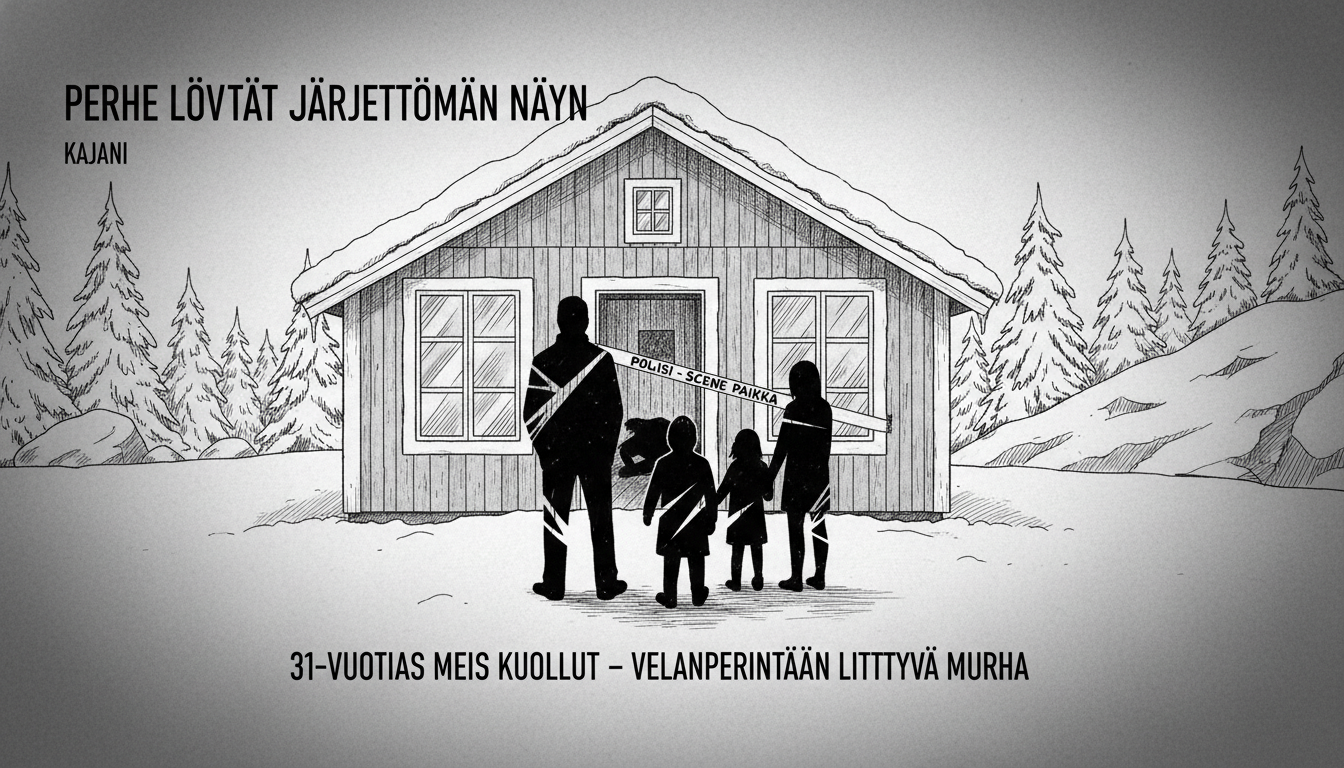A preliminary murder investigation has concluded in Kajaani, Finland, after a tragic discovery last August. Relatives found a horrifying scene at the home of a 31-year-old man in the Huuhkajanvaara neighborhood. Police received an emergency call on August 19 from a close family member who made the grim discovery.
Officers arriving at the row house apartment observed clear signs of a serious crime. A massive pool of blood was visible outside the front door, indicating violent struggle. The man's body was found inside his home where he had apparently been dead for several days before discovery.
Oulu police now suspect a local Kainuu man of murder and failure to perform rescue duties. Investigators believe the suspect brought a bladed weapon to the victim's apartment. The violent attack appears connected to debt collection activities, according to police statements.
This case highlights Finland's generally low but concerning violent crime rates. While the Nordic country maintains one of Europe's lowest homicide rates, debt-related violence remains an ongoing challenge. Finnish police typically investigate around 100-120 homicides annually, with many connected to personal disputes or criminal activities.
Kajaani, a city of approximately 36,000 residents in northeastern Finland, rarely experiences such brutal crimes. The Kainuu region where the city is located has faced economic challenges in recent years, with higher unemployment rates than national averages. Economic pressures sometimes contribute to criminal activities including illegal debt collection.
Finnish authorities take debt collection violence seriously. The country has specific laws regulating collection practices, but illegal enforcement methods occasionally surface. Police have increased monitoring of criminal networks involved in extortion and protection rackets.
The investigation now moves to prosecutors who will determine formal charges. If convicted of murder, the suspect faces life imprisonment under Finnish law. The failure to perform rescue duties charge carries additional penalties, reflecting Finland's legal emphasis on humanitarian responsibilities.
Local residents expressed shock at the brutality occurring in their quiet neighborhood. Community leaders have called for increased police presence and better social services to address underlying issues driving such violence. The case serves as a sobering reminder that even in generally safe Nordic societies, violent crimes can disrupt community peace.
What happens next in the legal process? Prosecutors will review the completed investigation and decide whether to bring the case to trial. The court proceedings would likely begin within months, though complex murder cases sometimes take longer to prepare. The outcome will be closely watched by both local residents and national authorities concerned about debt-related violence trends.

